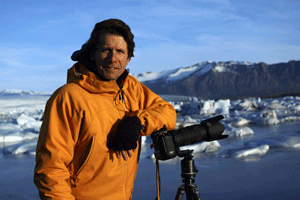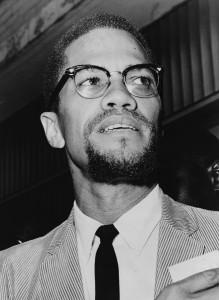On September 23, our SUST 500 class at Dickinson College had the pleasure of meeting James Balog, a world-renowned photographer best known for taking pictures of climate change’s effects on glaciers and ice sheets around the world. Students got to sit down and have a discussion with him about his work and his perspectives on climate change.
He said many interesting things, but the thing that stood out for me was his response when asked what individuals could do about climate change, “I don’t know,” he said. Balog went on to explain he responded in that way because he didn’t know anything about the person asking the question. Different people have different lives, and while some people are in a position act on climate change at a national or international level, some people can do important things at a more community or personal level.
I thought this was a really important point to make, and one that I had not heard before. Generally, when people talk about action on climate change, they discuss doing the little things such as riding a bike to work or recycling or purchasing fuel-efficient cars. While these things are all very important, I feel these kinds of actions sort of lump us all into one generic response. In fact, there are extreme differences among people across the United States and in the world in terms of age, wealth, access to resources, and other things. All of these factors play a part in what actions it is possible to take regarding climate change. More important than doing the generic “ride a bike, recycle, drive fuel-efficient cars” is to take a look at your circumstances and situation in life and make progress where you are able to make the most change.
In the civil rights era, Malcolm X, after taking a pilgrimage to Mecca in 1964, changed his views almost completely on white allies. Whereas before, he was staunchly against joining with white people, he now had this to say: “Where the really sincere white people have got to do their ‘proving’ of themselves is not among the black victims, but out on the battle lines of where America’s racism really is—and that’s in their own home communities…That’s where sincere whites who really mean to accomplish something have got to work” (Autobiography of Malcolm X). Malcolm X was still against having white people join the Black Panthers, but now it was because he believed it was not their place to make change. White people had influence in places where most black people at the time did not, and X believed it was in these places that white people could really do the most work.
This relates to climate change in that people should work to mitigate climate change in the realms they have the most influence. Some can influence high government functions, while others can do more work at a community level. Others might only be able to do small things at the community level. People should work to make changes in line with the circumstances surrounding their lives.



